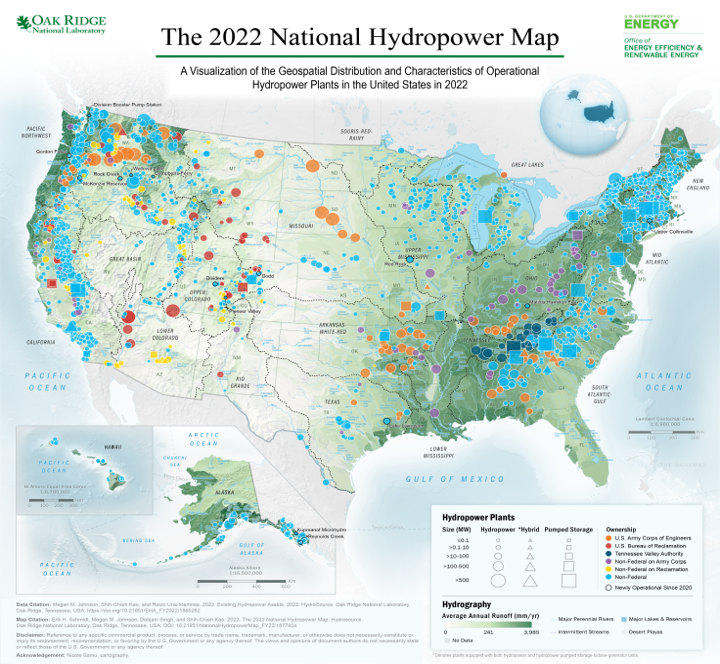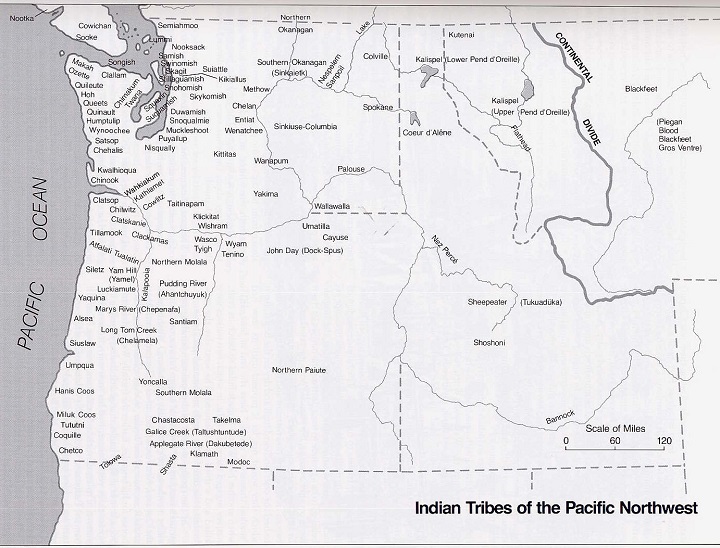The Bureau of Indian Affairs (BIA) is the agency charged with exercising the Secretary of the Interior’s authorities under the Federal Power Act (FPA)(16 USC § 791a et seq). The Hydropower Compliance Program endeavors to uphold the mission of the BIA by ensuring impacts to Tribal interests and resources are sufficiently mitigated in any hydropower license issued by the Federal Energy Regulatory Commission (FERC).
BIA works closely with federally-recognized Tribes, federal and state agencies, and other stakeholders as it participates in relicensing and surrender proceedings and develops and submits license conditions and recommendations. BIA also participates in and monitors license implementation efforts to ensure our conditions and recommendations are implemented sufficiently to protect Tribal interests and resources.
Under the FPA, FERC has jurisdiction over non-federal hydropower projects that are located on navigable waters of the United States or occupy public lands or Reservations of the United States. Any such operation and maintenance of these hydropower projects must be licensed by FERC. FERC will issue a license if such license satisfies the requirements of the FPA and includes any provisions necessary to ensure compliance with applicable laws such as the Endangered Species Act, Clean Water Act, and National Historic Properties Act.
Consistent with these statutory authorities, the BIA submits our conditions and recommendations to FERC for inclusion in licenses for hydropower projects to minimize impacts to Tribal trust lands and the lands and resources upon which Tribes rely. Approved hydropower licenses are granted by FERC for a period of 30 to 50 years with a default term of 40 years.

Tribal Consultations

Before filing an application for a FERC hydropower license, potential applicants are required to consult with relevant stakeholders (18 CFR § 5.1). Stakeholders include Indian Tribes, state and federal resource agencies, non-governmental organizations, and members of the public who may be impacted by the potential hydropower project. Separately from this requirement, the BIA endeavors to coordinate with Tribes that may be affected by the operation of a FERC-licensed hydropower project.
Developing Licensing Requirements
The BIA Division of Water and Power exercises the BIA’s responsibilities under the FPA to ensure a hydropower license contains measures that protect Tribal and natural resources and mitigate impacts to those resources.
These responsibilities include the authorities to develop and impose conditions deemed necessary for the adequate protection and utilization of Indian Reservations (16 USC § 797(e)), develop recommendations (16 USC § 803(a)), and assist Tribes with negotiating reasonable annual charges for use of Reservation lands (16 USC 803(e)).
License conditions and recommendations developed by the BIA consider impacts to Tribal trust lands and resources, including but not limited to occupation of land, flood inundation, erosion, degradation of fisheries, impacts to water quality, effects on cultural resources, and harm to other tribal and natural resources. Examples of hydropower license conditions include, but are not limited to the following:
- instream flow regimes,
- water quality standards and water quality monitoring measures,
- fish habitat development projects,
- fish stocking and supplementation management plans,
- upstream and downstream fish passage measures,
- lake and tributary shoreline erosion control measures,
- wetland and riparian habitat enhancement,
- aquatic weed management measures,
- wildlife protection measures,
- cultural resource protection measures.
Hydropower licensing conditions must be reasonably related to the purpose of protecting the Reservation and be supported by substantial evidence. The material facts underlying licensing conditions are subject to a trial-type hearing under amendments made by the Energy Policy Act of 2005, may be reconsidered on rehearing, and are appealable to the U.S. Courts of Appeal.
Implementation, Monitoring and Enforcement of Hydropower Licenses
Once a hydropower license is issued, FERC monitors and enforce license conditions. The BIA is available upon request to assist Tribes in communicating with FERC and licensees including if compliance violations are observed. The BIA also often participates on implementation committees when such committees are included in a FERC license or a settlement of a license.
Contact Us
Lakewood, CO 80401


